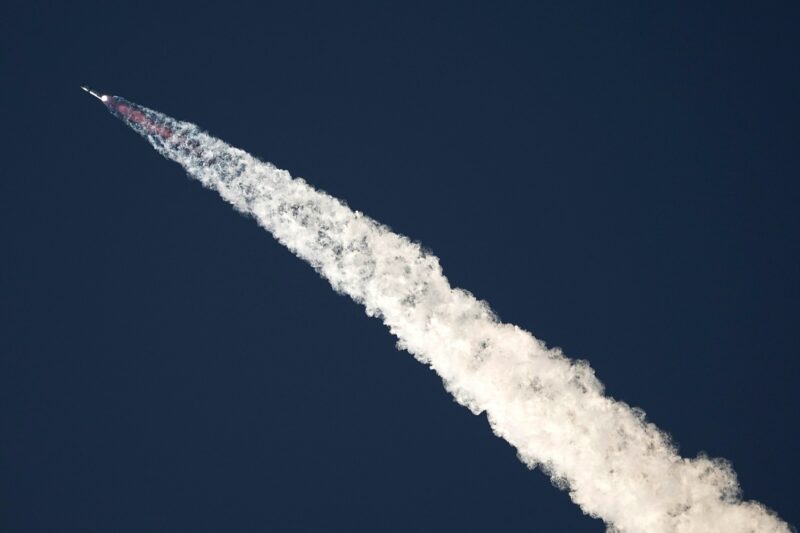SpaceX Starship launch fails minutes after reaching space
Rocketship blasted off from Elon Musk-owned company's Starbase launch site near Boca Chica in Texas.
BOCA CHICA (Reuters): SpaceX’s uncrewed spacecraft Starship, developed to carry astronauts to the moon and beyond, failed in space shortly after lifting off on Saturday, cutting short its second test but making it further than an earlier attempt that ended in an explosion.
The two-stage rocketship blasted off from the Elon Musk-owned company’s Starbase launch site near Boca Chica in Texas, helping boost the Starship spacecraft as high as 90 miles (148 km) above ground on a planned 90-minute test mission to space and back.
But the rocket’s Super Heavy first stage booster, though it achieved a crucial maneuver to separate with its core Starship stage, exploded over the Gulf of Mexico shortly after detaching, a SpaceX webcast showed.
Meanwhile, the core Starship stage boosted further toward space, but a few minutes later a company broadcaster said that SpaceX mission control suddenly lost contact with the vehicle.
“We have lost the data from the second stage… we think we may have lost the second stage,” SpaceX engineer and livestream host John Insprucker said. He added that engineers believe an automated flight termination command was triggered to destroy the rocket, though the reason was unclear.
About eight minutes into the test mission, a camera view tracking the Starship booster appeared to show an explosion that suggested the vehicle failed at that time. The rocket’s altitude was 91 miles (148 km).
The launch was the second attempt to fly Starship mounted atop its towering Super Heavy rocket booster, following an April attempt that ended in explosive failure about four minutes after lift-off.


Comments are closed.